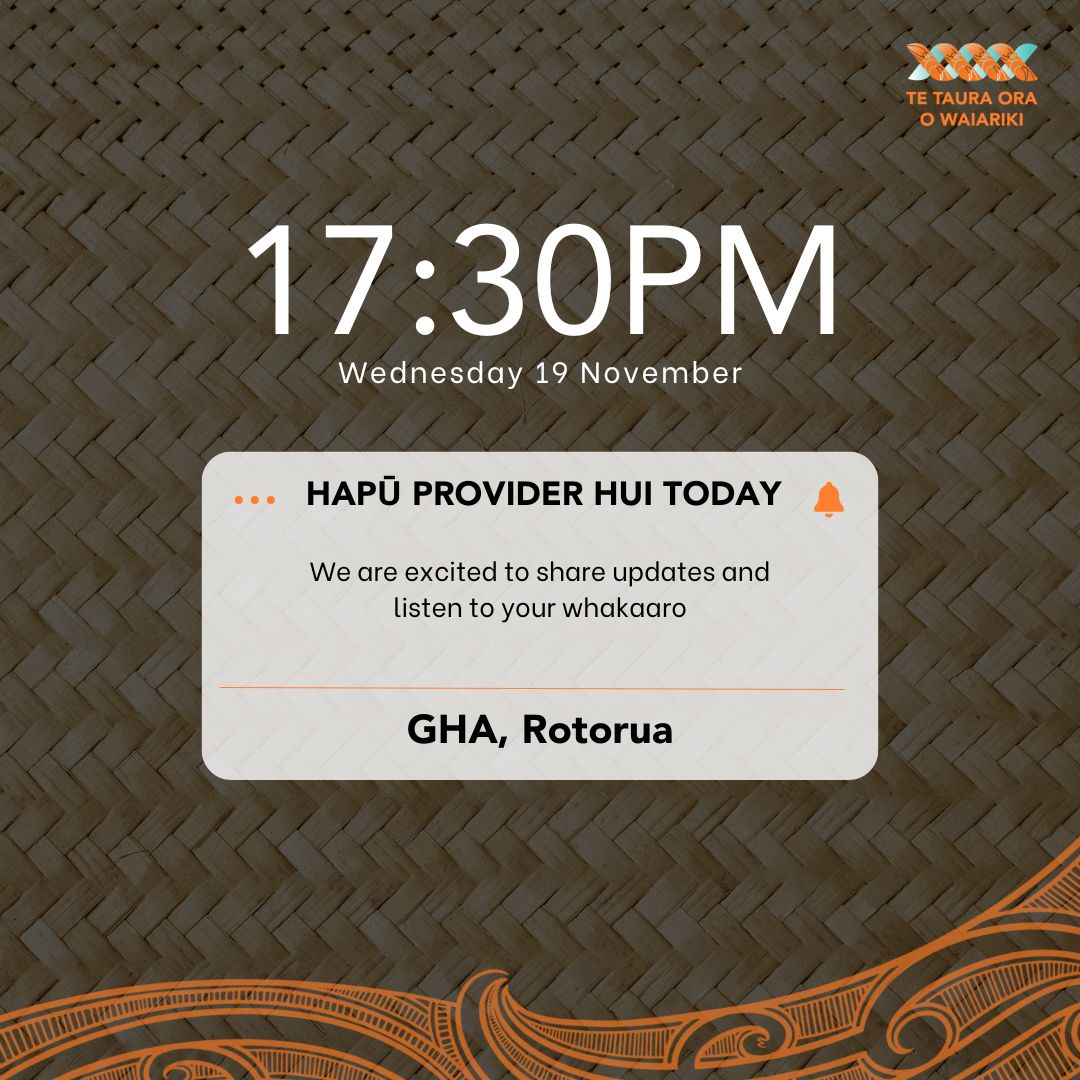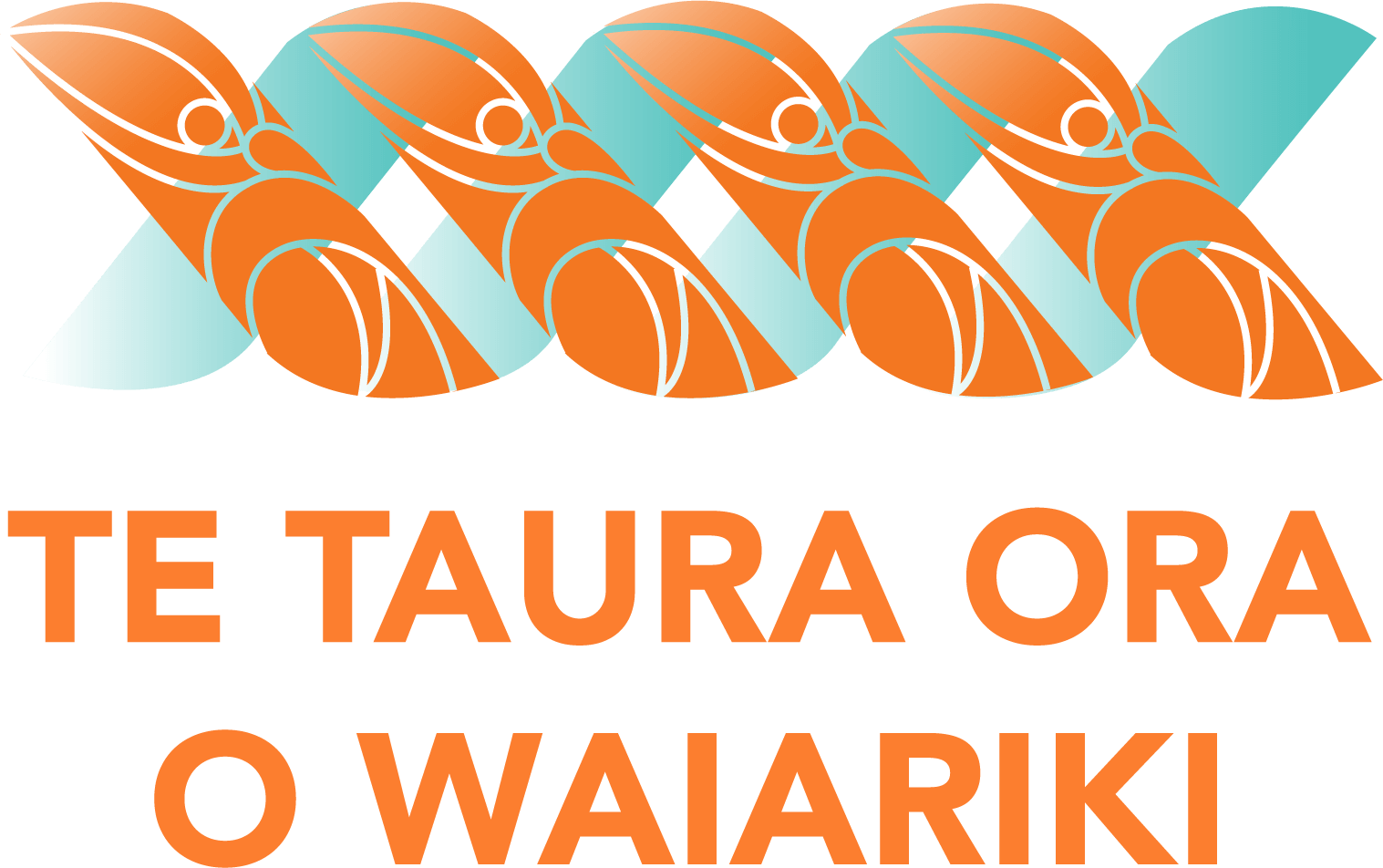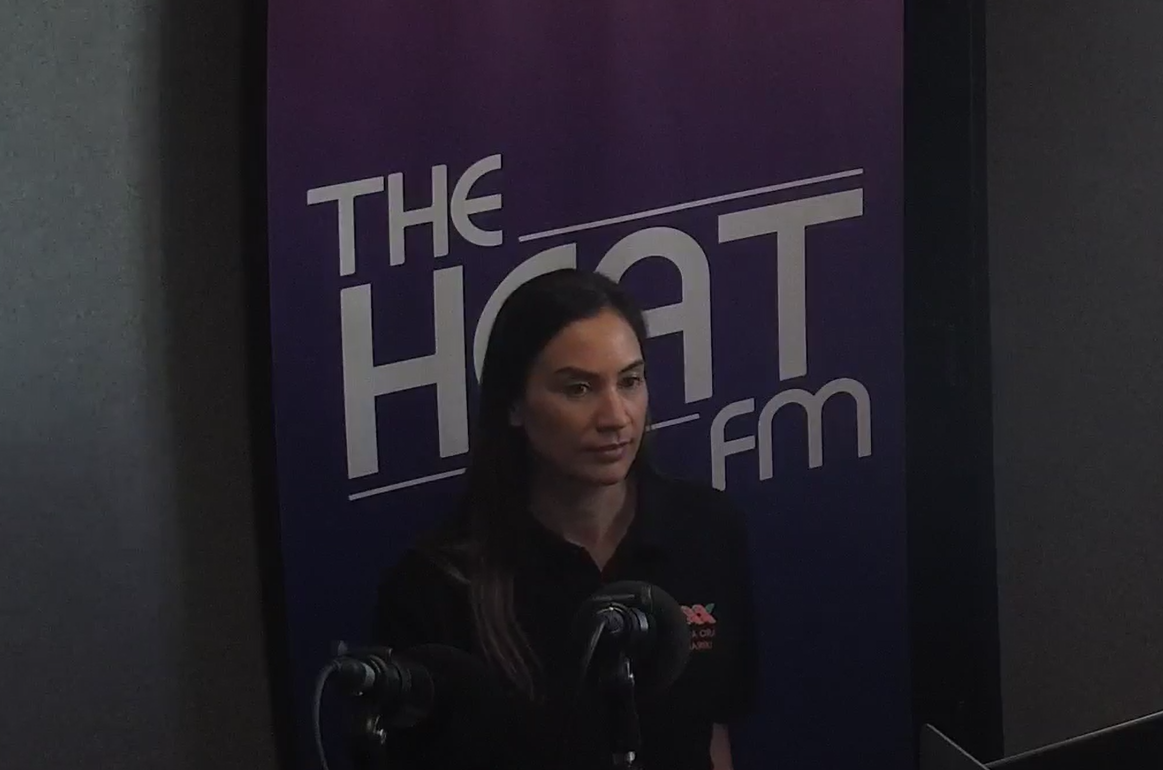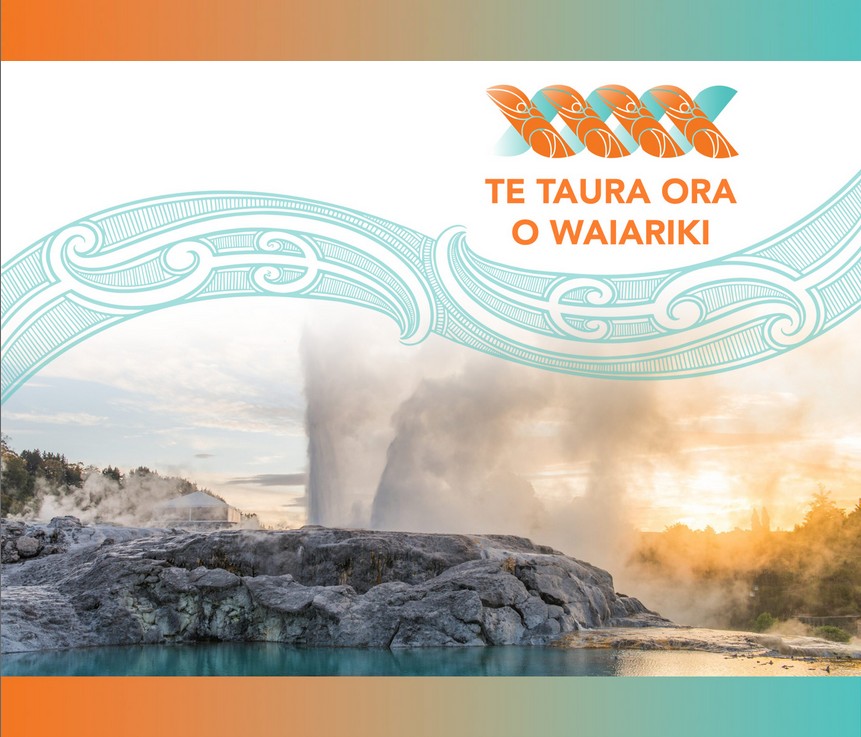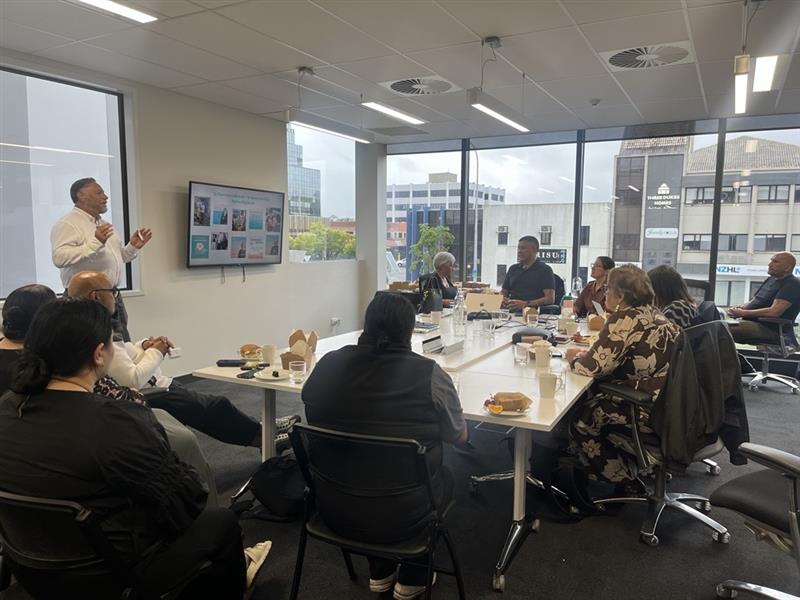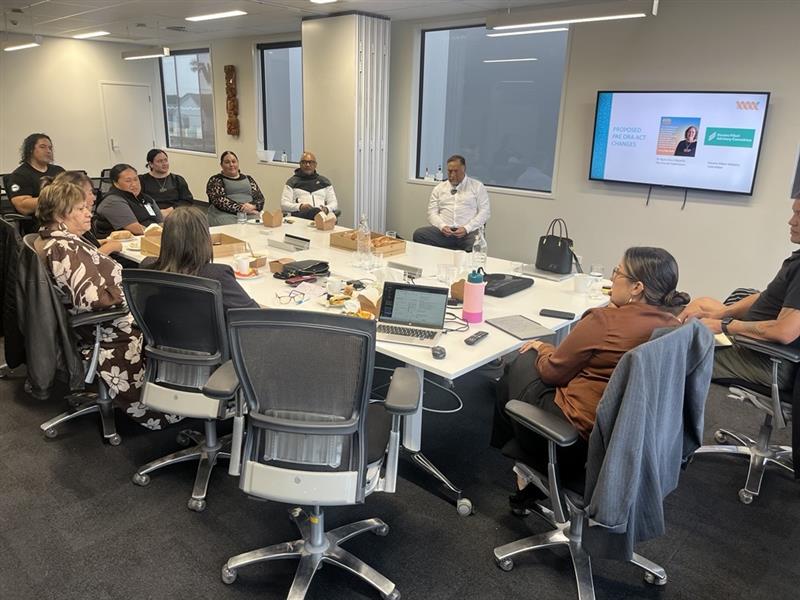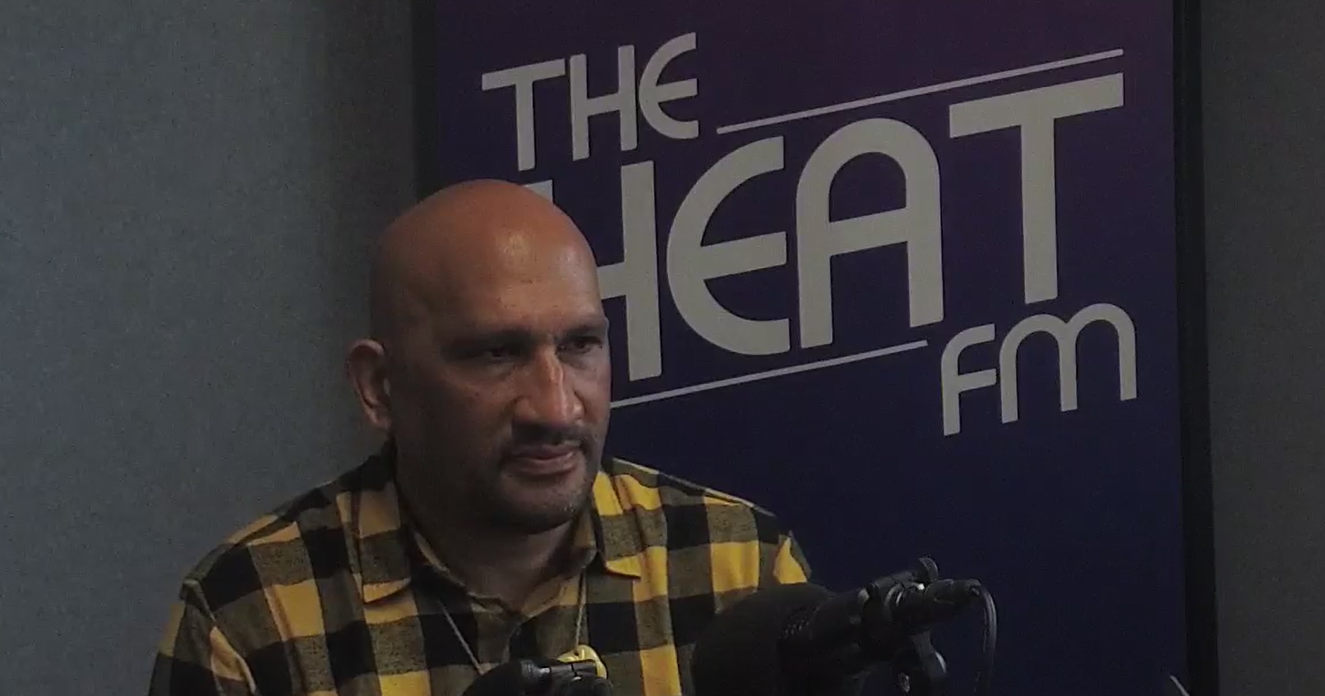Lack of partnership in health sector changes - Iwi Partnership Boards

Iwi Māori Partnership Boards (IMPBs) are concerned their role in the health system will be reduced under the government’s Healthy Futures (Pae Ora) Amendment Bill.
The Health Select Committee released its final report on the bill in November, recommending it be passed. It is expected to have its second reading in the coming months.
Minister of Health Simeon Brown said the changes being made were focused on ensuring a clearer structure that delivered better results, including for Māori, and a key part of this is clarifying the role of Iwi Māori Partnership Boards.
The 15 regional Iwi Māori Partnership Boards were set up in 2022 to ensure the voices of Māori are heard in healthcare decision-making and improve hauora outcomes for Māori.
Te Kāhui Hauora o Te Tauihu covers the top of the South Island, its Pouwhakahaere Dr Kim Ngawhika said currently IMPBs have three main functions: first to provide a whānau voice, second to monitor the health system and third to work with Health NZ in developing priorities for improving hauora Māori.
Under the Pae Ora amendments those functions would be reduced to one, providing a voice for whānau, she said.
“It does kind of put us on the outer as far as partnership is concerned, we’re still there, we’re still going, but is has reduced our responsibility considerably.”
Ngawhika (Kāi Tahu, Kāti Mamoe, Te Arawa) said it feels as if the partnership is being reduced as much as possible without shutting down the IMPBs outright.
“Of course we will adapt, Māori have always adapted, as governments come and go we remain. Our focus for Te Kāhui is our whānau voice.”
Ngawhika said the focus for the IMPB remains on working with whānau and continuing to engage in the health system despite the uncertainty of what the future holds.
When Te Aka Whai Ora, the Māori Health Authority was disestablished the IMPBs took on some of its responsibilities, and the previous Health Minister Dr Shane Reti indicated that they would be empowered to take on a much broader remit. https://www.rnz.co.nz/news/in-depth/514549/how-the-coalition-plans-to-replace-the-quickly-scrapped-maori-health-authority
Ngawhika said there was some great encouragement from Reti in his initial contact with the IMPBs during what was a time of uncertainty.
“There was a lot of work that happened in that time and it was a time of great change too because Te Aka Whai Ora was being disestablished and I think that the Iwi Māori Partnership Boards just put their heads down and got on with that piece of work.”
The Manahautū of Wellington IMPB Āti Awa Toa Hauora, Hikitia Ropata is concerned that the IMPBs will lose their direct relationship with the Minister of Health under the changes, which would see the Hauora Māori Advisory Committee (HMAC) providing advice to the Minister instead.
But as Ropata (Ngāti Toarangatira, Te Āti Awa, Ngāti Raukawa, Ngāti Porou) notes, the members of HMAC are appointed by the Minister.
“So what we want is the opportunity to influence at that really regional, local level. I know there are public servants working hard to try and enable that to happen. But when your legislative framework changes so much, it’s hard to keep the faith in a system when you know you want the best for your people.”
The IMPBs have now been around for three years now and in that time have worked hard to build relationships both with the communities they serve and with Health NZ, she said.
“At the end of the day, I think that IMPBs have a better crack at building trust and getting information from our own people than if health officials go out and try and do it.”
Ropata is also concerned that among the raft of changes the Bill also strips key health sector principles designed to address inequities by removing the requirement for the Government Policy Statement (GPS) to consider any national health strategy.
These strategies, such as the Māori health strategy and Pacific health strategy, provide important evidence and data and Ropata is worried the health system will “lose its compass” without them.
“If we can’t use that evidence and that data for our way forward, how the heck are we going to know where we’re heading, how the heck are we going to achieve better equity for our people in our community? Our people, iwi and Māori people in our local areas, but also everyone.”
The amendment breaks the link between long-term health planning and the political direction of the day, she said.
“Basically, IMPBs could be left monitoring ongoing inequities for the government, but not have it influence what the government aims to do in its government policy statement.”
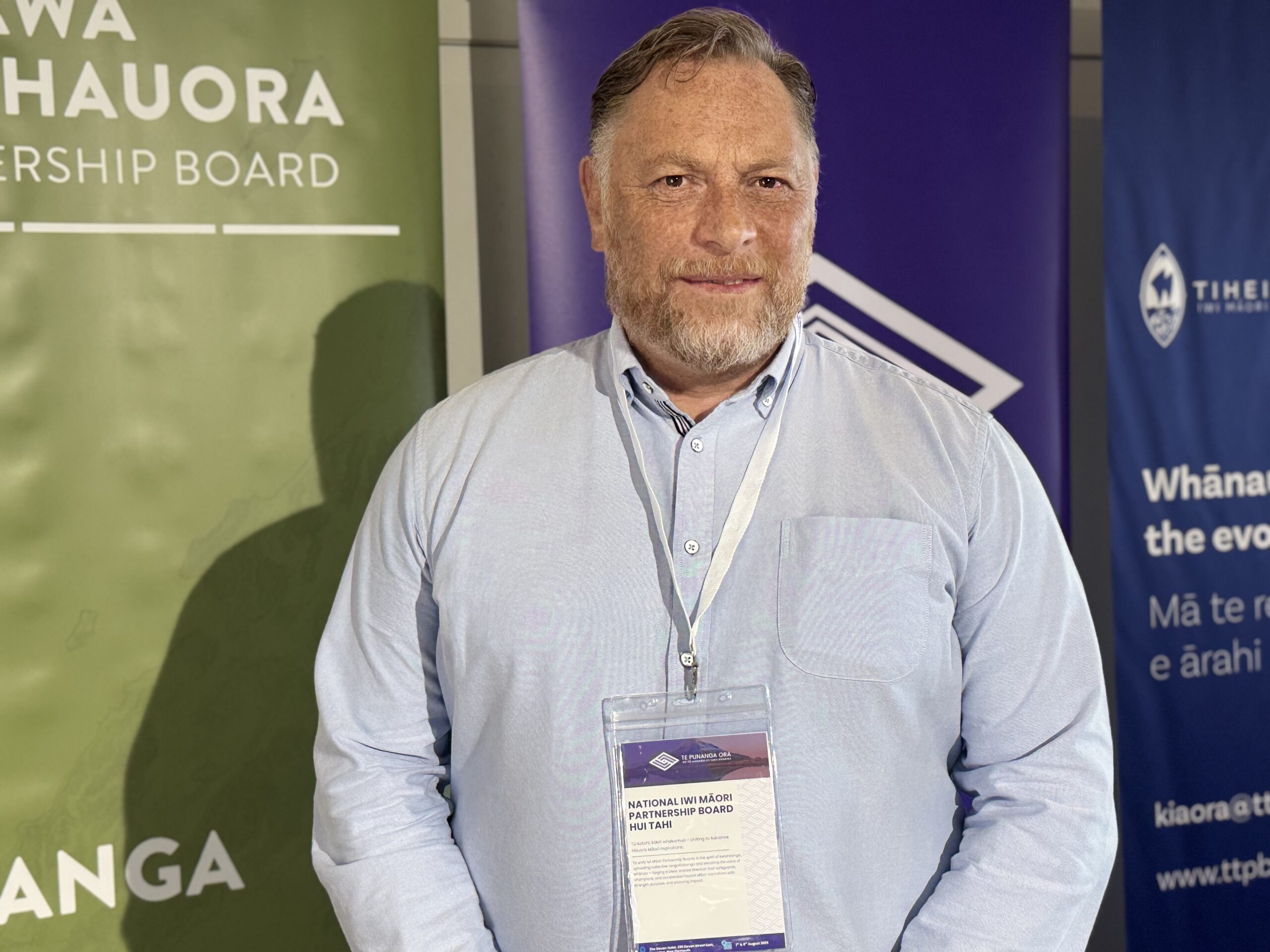
Te Taura Ora o Waiariki, the IMPB for Te Arawa, also expressed concern at the removal of the strategies for groups most affected by inequity, including whaikaha (disabled) whānau.
“Removing strategies for those already struggling to be heard is dangerous. These inequities are avoidable, unfair, and unjust. The amendments make them worse,” said Chair Hingatu Thompson.
Both Māori voices and those of supportive non-Māori organisations have been ignored, he said.
“When you remove evidence, ignore submissions, and downgrade Te Tiriti, you’re left with political ideology interfering with the democratic process. And that ideology is clearly anti-Māori,” he said.
Ngawhika made note that one of the minor changes the Bill makes is a change to its name, switching from Pae Ora (Healthy Futures) to Healthy Futures (Pae Ora). “This is yet another way of silencing our voice,” she said.
Minister of Health Simeon Brown said under the changes IMPBs will continue to do what they are best placed to do: engage directly with their communities, identify local barriers, and provide deep insight into what is driving outcomes on the ground.
“IMPBs will also continue to engage with Health New Zealand at a district level, ensuring community perspectives directly inform how services are delivered in each region.
“For example, Māori children continue to have lower vaccination rates than non-Māori. Understanding the specific local issues behind those rates is essential to improving them, and that insight comes from IMPBs.
“These insights will also be provided to the Hauora Māori Advisory Committee, whose role is being strengthened to provide independent national-level advice on Māori health priorities to the Minister and the Health New Zealand Board. This creates a clear and consistent pathway from local insight to national decision-making.
“This approach will support more effective, community-informed responses to issues such as childhood immunisation and outbreaks, particularly in areas where Māori outcomes can be improved.”
Original Article Source: https://www.rnz.co.nz/news/te-manu-korihi/581888/lack-of-partnership-in-health-sector-changes-iwi-partnership-boards
Hingatu Thompson | Māori Health Advocate Hingatu Thompson Sounds Alarm Over Pae Ora Changes
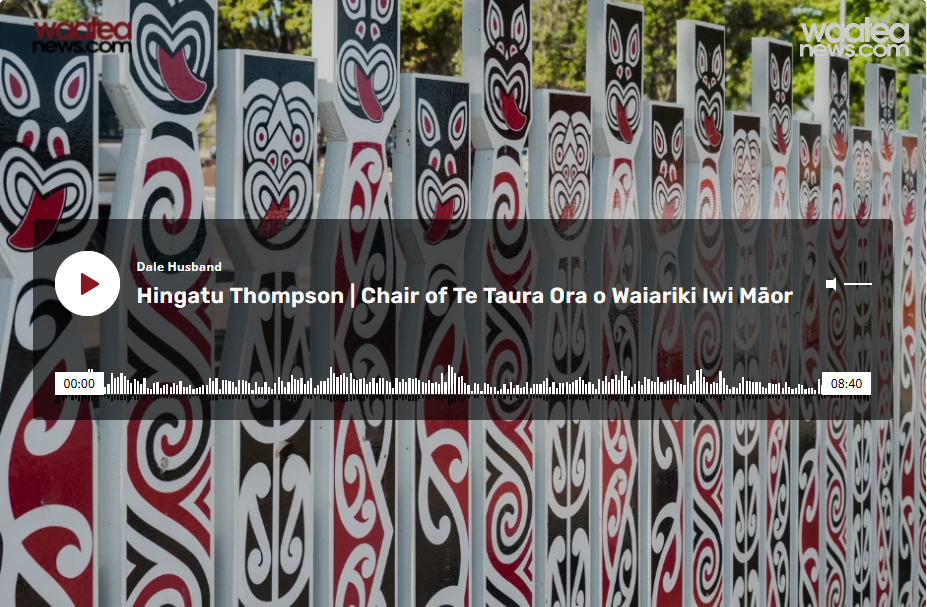
Hingatu Thompson: Pae Ora Bill Changes Called ‘An Attack on Māori Health Futures.
Hingatu Thompson, a member of the Te Taura Ora o Waiariki Iwi-Māori Partnership Board, has publicly warned that the government’s proposed reforms under the Healthy Futures (Pae Ora) Amendment Bill represent “an attack on Māori health futures”. The concerns have added to widespread industry and community opposition to the Bill.
The Amendment Bill seeks to restructure how health services are delivered nationwide. Among the most controversial changes are:
-
The removal of the statutory obligations for health organisations to pursue equity for Māori outcomes.
-
A diminished role for Iwi–Māori Partnership Boards (IMPBs). Under the reforms, IMPBs would be relegated to advisory status – stripping them of many existing powers around commissioning services, planning, and local Māori governance in health care.
-
The elimination of certain governance and Treaty-based obligations. The Bill removes the requirement for the health board to include expertise in te Tiriti o Waitangi, equity and kaupapa Māori when appointing its members.
-
Increased centralisation of decision-making, shifting power from local iwi-community input to national-level administration through the main health service provider.
Taken together, critics say these changes undermine decades of progress towards equitable Māori health outcomes and weaken the ability of Māori communities to shape health services for themselves.
Thompson has been vocal about four major flaws in the Bill, urging the government to reconsider before proceeding.
-
Hingatu argues the reforms reduce Māori agency and decision-making power in health – even though Māori continue to experience significant health inequities compared with non-Māori.
-
He warns that downgrading IMPBs to advisory status removes the guarantee of local input, making health planning less responsive to community needs and less culturally safe.
-
Thompson says the Bill’s shift toward infrastructure and broad national governance priorities risks sidelining kaupapa Māori health services and the holistic, whānau-centred approach that Māori communities rely on.
-
He expresses deep concern that removing statutory commitments to Māori health equity effectively erases obligations under the Te Tiriti o Waitangi in health care – a fundamental principle since earlier health reforms.
In his view, the Bill doesn’t just restructure the health system – it represents a retreat from Treaty-based accountability and a threat to Māori wellbeing.
Thompson is not alone. The Bill has drawn criticism from a wide range of health professionals, Māori organisations, primary-health providers, and disability advocacy groups. Many submitters to the Health Committee described the Bill as weakening equity commitments, reducing accountability, and threatening community-based care models that target Māori needs.
One medical community submission warned that removing obligations to improve Māori health outcomes risks worsening inequities, not only for Māori but for many other vulnerable populations.
Meanwhile, Māori health advocates across the motu say the changes reverse years of progress and could lead to poorer health outcomes, less cultural safety, and decreased trust in public health institutions.
The reforms come only a little over a year after the disestablishment of the former dedicated Māori Health Authority, Te Aka Whai Ora – itself one of the pillars of Māori-led health governance. That 2024 change was controversial and challenged under a priority inquiry by the Waitangi Tribunal, which found the Crown had breached Treaty obligations in how it removed Te Aka Whai Ora without proper consultation or Māori agreement.
Many see the current Amendment Bill as the next step in a legislative trend that sidelines Māori-specific health governance and erodes structural protections for Māori health equity.
As of December 2025, the Healthy Futures (Pae Ora) Amendment Bill has passed its first reading and is before the Health Committee for submissions. But according to media reports, the Committee’s final report – submitted recently – returns the Bill to Parliament without changes, despite widespread opposition.
For Thompson and many others, that outcome signals that the government may proceed regardless of how many communities, medical experts and Māori leaders speak out – making their advocacy ahead of the next legislative stage all the more critical.
They are urging Māori, whānau, and community supporters to submit feedback to the Health Committee (or resubmit if already done), to publicly vocalise concerns, and to call on MPs to uphold Treaty-based health equity and meaningful Māori participation in the health system.
Original Article Source: https://waateanews.com/2025/12/05/hingatu-thompson-chair-of-te-taura-ora-o-waiariki-iwi-maori-partnership-board/
Healthy Futures Amendment Bill Is “An Attack On Māori Development”

Te Taura Ora o Waiariki, Iwi Māori Partnership Board says the Health Select Committee’s recommendation to pass the Healthy Futures (Pae Ora) Amendment Bill undermines Te Tiriti o Waitangi, ignores overwhelming public submissions, and is “an attack on anything that strengthens the future for Māori,” said Chair Hingatu Thompson.
At a time when iwi hauora leaders are raising concerns about racial discriminatory government policy at the United Nations, Hingatu says the Bill continues a pattern of sidelining evidence, weakening Indigenous rights, and eroding the foundations of the health system.
“At a high level, the Bill feels like an attack. Anything that strengthens Māori futures seems to be under assault by this government. The Pae Ora framework was built on Tā Mason Durie’s vision of a healthy future, and now they’re pulling apart everything that upholds it.”
He says both Māori voices and those of supportive non-Māori organisations were ignored. “When you remove evidence, ignore submissions, and downgrade Te Tiriti, you’re left with political ideology interfering with the democratic process. And that ideology is clearly anti-Māori,” he said.
The Bill removes localities, downgrades te reo Māori in legislation, weakens Iwi Māori Partnership Boards voted in to the governance role by their Iwi and hapū, and replaces genuine partnership with the Crown appointed Hauora Māori Advisory Committee.
“This feels like Colonisation all over again. The unwillingness to include Māori kupu signals a deeper dismissal of Māori knowledge too. Advisory committees can have amazing people, but they’re still hand-picked by government which is controlling the outcome. That is not partnership or tino rangatiratanga.”
Hingatu warns the government is out of step with the rest of the country. “Aotearoa is ready for a more substantive expression of Te Tiriti. The public is ahead of the government, look what is happening with the schools’ response to the proposed changes to the Education and Training Amendment Bill. This regression doesn’t reflect who we are as a nation.”
He says the changes undo decades of Māori health advancement. “It has taken forty years to build what we have. One term of government should not be able to unwind it. Undermining whānau undermines the future of Aotearoa. Our rangatahi won’t sit quietly, they expect to be heard.”
Te Taura Ora is also alarmed by the removal of strategies for groups most affected by inequity, including whaikaha whānau. “Removing strategies for those already struggling to be heard is dangerous. These inequities are avoidable, unfair, and unjust. The amendments make them worse.”
Hingatu says political interference in evidence-based policy risks public trust. “When Māori die seven years earlier, and decades of evidence explain why, you expect a government to act, not ignore it. Ideology interfering with the democratic process is dangerous,” he said.
Despite widespread opposition, the coalition has the votes to pass the Bill Hingatu anticipates. He believes this will trigger further action, including a Waitangi Tribunal claim and international scrutiny.
Regardless, Te Taura Ora will continue to work with iwi, hapori, and whanau to protect Te Tiriti and achieve better outcomes in Hauora Māori for whānau.
Original Article Source: https://www.scoop.co.nz/stories/AK2512/S00085/healthy-futures-amendment-bill-is-an-attack-on-maori-development.htm
Opinion: Whānau Voice Grant doubles engagement as Te Arawa leads health change
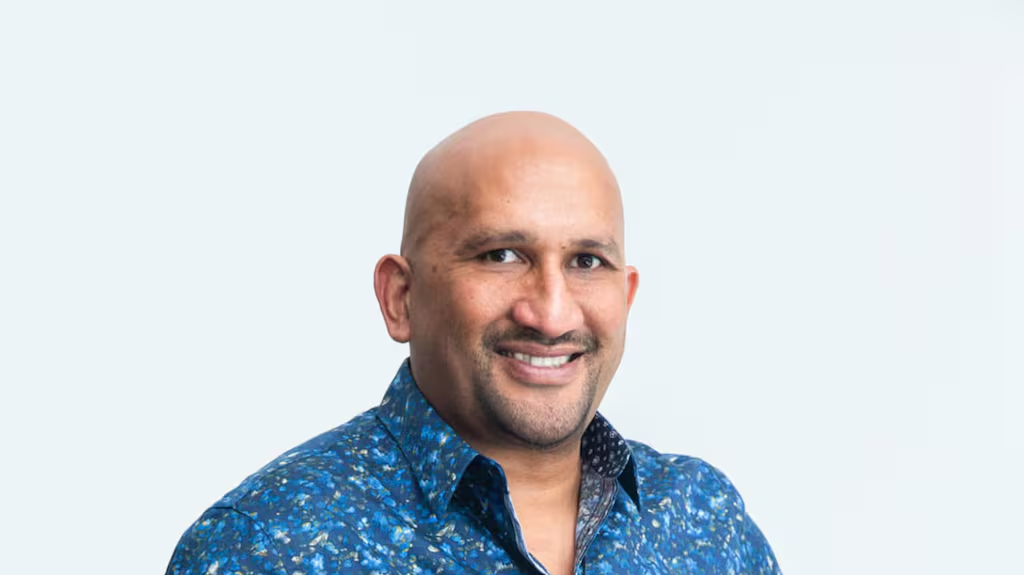
Rawiri Bhana, from the Te Taura Ora o Waiariki Iwi Māori Partnership Board, reflects on an extraordinary response to a health initiative.
Over the past two weeks, something remarkable has happened across Te Arawa.
Our new Whānau Voice Grant, a $50,000 fund that empowers local whānau to shape health and wellbeing, has sparked a level of engagement that has been overwhelming and inspiring.
And it proves one thing: when you listen to whānau, they respond with energy, insight and solutions.
I’ll be honest: we weren’t sure how the community would engage.
But after our first radio interview on The Heat, my phone lit up with calls from all corners of the rohe. Whānau were saying, “We saw you on the morning show, how can we apply?”
From hapū māmā and natural birthing advocates, to rangatahi, Takatāpui, and even local gang communities, all sorts wanted to step forward.
Whānau from the Block reached out, excited to activate their own initiatives. The response has been extraordinary.
Registrations have doubled.
Traffic to our registration page has increased by 87%, and visits to the application page are up 62%.
The highest-viewed page on our website is the Whānau Voice Grant Guidelines & Criteria.
On social media, our top posts to date include Applications Now Open (5132 views) and Pitch Your Best Idea (5849 views).
This grant is designed to be inclusive and accessible.
Rangatahi, for example, can submit a simple video, tell a story, or express their ideas in a medium that suits them, not a 20-page application form.
We want whānau to engage in their own language, style, and way. It’s not about fitting into the system; it’s about reshaping the system to reflect whānau realities.
For too long, our national health system has operated like a one-size-fits-all model.
Communities that don’t fit the usual parameters like remote or rural whānau, tāngata whaikaha, gang whānau, takatāpui, young parents, often go unheard. This grant flips that dynamic on its head.
Instead of asking whānau to conform, we are adapting the system to capture their expertise, creativity, and insight.
Already, stories are emerging that wouldn’t appear in standard reporting cycles.
Rangatahi sharing what wellbeing truly feels like, hapū māmā highlighting gaps in birthing and postpartum support, takatāpui whānau surfacing health challenges and solutions that are invisible in traditional data.
These are insights that decision-makers in our Te Manawa Taki region and in Wellington need to hear and they come directly from our people living the experiences.
Our Te Taura Board sees success not just as awarding the 10 $5000 grants available in this first round, but as receiving an abundance of applications.
Every story, every idea is valuable, and the more whānau contribute, the more we can support and scale solutions, not just this year, but in future tranches of funding.
This kaupapa is about making mokopuna decisions, those long-view choices whose benefits may only be seen by future generations.
It’s about ensuring the health system we build today is culturally grounded, relational, and responsive to the real needs of our people.
If the past two weeks are any indication, our whānau are rising. They are speaking. They are shaping their own future. Our job is simple: listen, honour their kōrero, and act.
Applications close at Thursday, November 27. Whānau can apply via our website tearawaimpb.co.nz/whanau-voice-grant-guidelines or through our social media channels.
It’s quick, simple, and your voice can make a real difference.
This is only the beginning. Whānau are leading the way and we are listening.
Original Article Source: https://www.teaonews.co.nz/2025/11/25/opinion-whanau-voice-grant-doubles-engagement-as-te-arawa-leads-health-change/
Listening to Whānau Is Changing the Future of Our Health System

Over the past two weeks, something remarkable has happened across Te Arawa. Our new Whānau Voice Grant, a $50,000 fund empowering local whānau to shape health and wellbeing, has sparked a level of engagement that has been overwhelming and inspiring. And it proves one thing: when you listen to whānau, they respond with energy, insight, and solutions.
I’ll be honest: we weren’t sure how the community would engage. But after our first radio interview on The Heat, my phone lit up with calls from all corners of the rohe. Whānau were saying, “We saw you on the morning show, how can we apply?”
From hapū māmā and natural birthing advocates, to rangatahi, Takatāpui, and even local gang communities, all sorts wanted to step forward. Whānau from the Block reached out, excited to activate their own initiatives. The response has been extraordinary.
Registrations have doubled. Traffic to our registration page has increased by 87%, and visits to the application page are up 62%. The highest-viewed page on our website is the Whānau Voice Grant Guidelines & Criteria. On social media, our top posts to date include ‘Applications Now Open’ (5,132 views) and ‘Pitch Your Best Idea’ (5,849 views).
This grant is designed to be inclusive and accessible. Rangatahi, for example, can submit a simple video, tell a story, or express their ideas in a medium that suits them, not a 20-page application form. We want whānau to engage in their own language, style, and way. It’s not about fitting into the system; it’s about reshaping the system to reflect whānau realities.
For too long, our national health system has operated like a one-size-fits-all model. Communities that don’t fit the usual parameters like remote or rural whānau, tāngata whaikaha, gang whānau, Takatāpui, young parents, often go unheard. This grant flips that dynamic. On its head. Instead of asking whānau to conform, we are adapting the system to capture their expertise, creativity, and insight.
Already, stories are emerging that wouldn’t appear in standard reporting cycles. Rangatahi sharing what wellbeing truly feels like, hapū māmā highlighting gaps in birthing and postpartum support, Takatāpui whānau surfacing health challenges and solutions that are invisible in traditional data.
These are insights that decision-makers in our Te Manawa Taki region and in Wellington need to hear and they come directly from our people living the experiences.
Our Te Taura Board sees success not just as awarding the ten $5,000 grants available in this first round, but as receiving an abundance of applications. Every story, every idea is valuable, and the more whānau contribute, the more we can support and scale solutions, not just this year, but in future tranches of funding.
This kaupapa is about making mokopuna decisions, those long-view choices whose benefits may only be seen by future generations. It’s about ensuring the health system we build today is culturally grounded, relational, and responsive to the real needs of our people.
If the past two weeks are any indication, our whānau are rising. They are speaking. They are shaping their own future. Our job is simple: listen, honour their kōrero, and act.
Applications close at COB Thursday, 27 November. Whānau can apply via our website tearawaimpb.co.nz/whanau-voice-grant-guidelines or through our social media channels.
It’s quick, simple, and your voice can make a real difference.
This is only the beginning. Whānau are leading the way and we are listening.
Kōrero with Sheena Waerea part of Te Taura Ora o Waiariki - Te Arawa IMPB
Kōrero with Sheena Waerea part of Te Taura Ora o Waiariki - Te Arawa IMPB in to talk about Whānau Voice grants that close off this week.
Sheena covers Purpose of the grants, Reminder of Closing Date, How easy it is to apply, Encouraging Last-Minute Entries.Applications are now open — click here to learn more. Applications close November 27.
REMINDER: Whānau Voice Grants Close This Thursday!
He wā tēnei kia rangona te reo o te whānau.
Now is the time for your voice to be heard.
If you’ve been thinking about applying for a Whānau Voice Grant, this is your gentle reminder - applications close this Thursday 27 November.
Watch the short video below to see how you and your whānau can share your stories, ideas, and experiences to help shape the future of health and wellbeing in our rohe.
Let your voice guide the way forward.
Kia kaha, kia māia, kia manawanui.
Now is the time for your voice to be heard.
Kia kaha, kia māia, kia manawanui.
Quarterly Hapū Provider Hui - Update
On Wednesday 19 November, we gathered for our Te Taura Ora o Waiariki quarterly Stakeholder & Provider Hui – he wā kōrero, he wā whakarongo, he wā whakarite mahere mō āpōpō.
It was awesome to come together ā tinana, share whakaaro, and hear the latest updates on the kaupapa happening across our rohe. We talked through progress on our whānau voice initiatives, heard insights from current projects, and listened to reflections from those working on the front line of hauora and community wellbeing.
We also looked ahead to what’s coming up and started mapping out our collective priorities as we move toward 2026. A real sense of kotahitanga, collaboration, and commitment came through – all focused on strengthening hauora outcomes for our Te Arawa whānau.
Ngā mihi nui to everyone who showed up, contributed, and shared your mātauranga. Your voices help guide our direction and keep our mahi grounded in what matters most – our whānau.
Hei mahi tahi, hei painga mō te iwi.
Kōrero with Rawiri Bhana of Te Taura Ora o Waiariki - Te Arawa IMPB
Kōrero with Rawiri Bhana part of Te Taura Ora o Waiariki - Te Arawa IMPB in to talk about Whānau Voice Grants, 10 grants of $5,000 total pool $50,000.
Applications are now open — click here to learn more. Applications close November 27.
Quarterly Hapū Provider Hui
 Reminder: Quarterly Hapū Provider Hui – Tonight!
Reminder: Quarterly Hapū Provider Hui – Tonight!
Our quarterly Hapū Provider Hui is happening tonight! We’re excited to share updates and hear your whakaaro ā tinana.
 Wednesday 19 November 2025
Wednesday 19 November 2025
 5.30pm – 7.30pm
5.30pm – 7.30pm
 GHA, Rotorua
GHA, Rotorua
Thank you to everyone who RSVP’d – we look forward to seeing you there!
